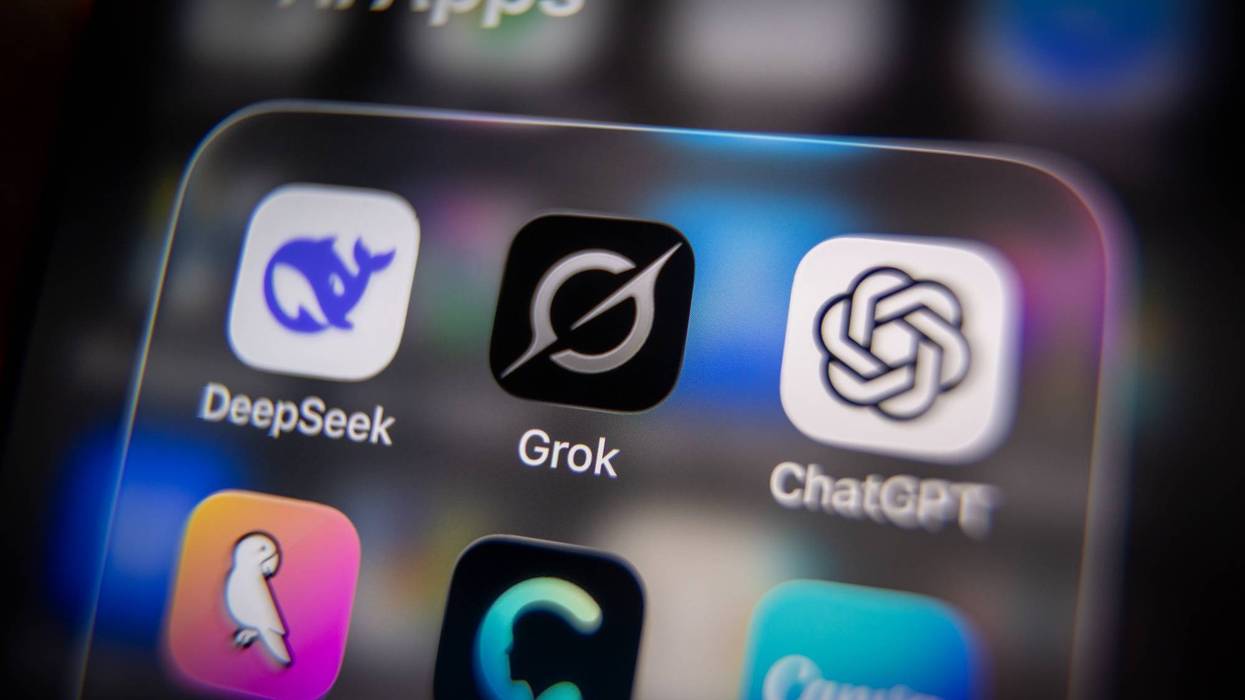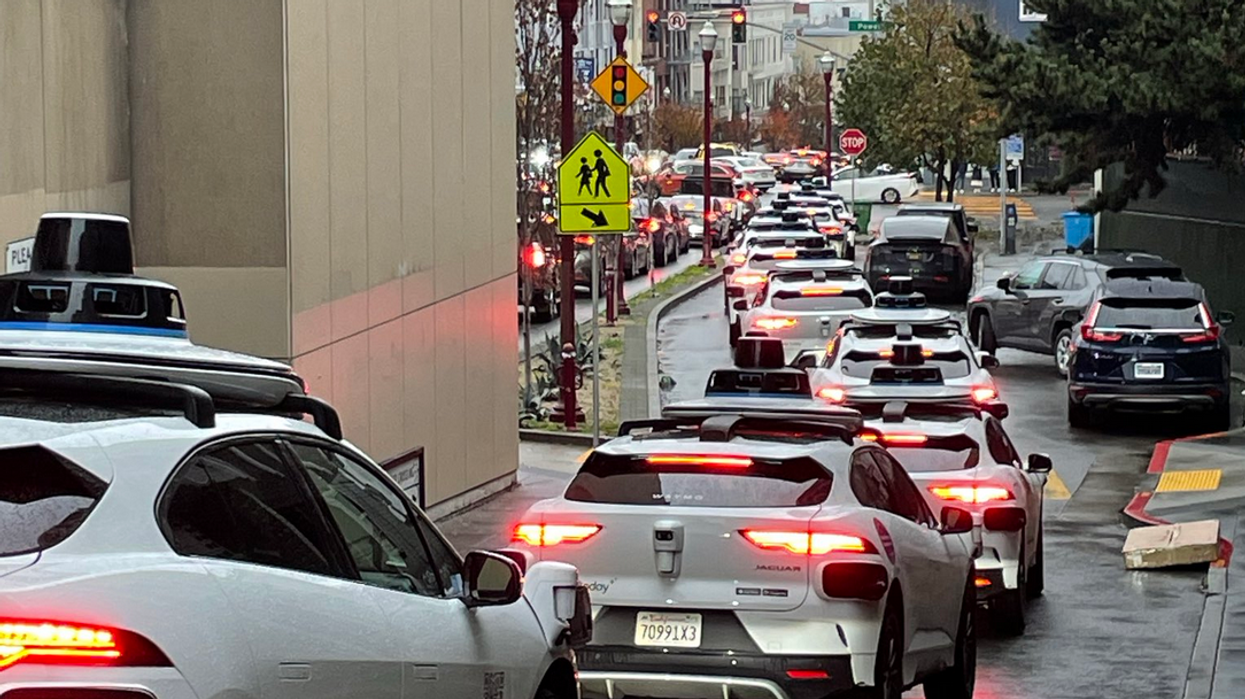The blackout left traffic lights inoperable, rendering much of Waymo's fleet of around 300 robotaxis "stuck and confused," as one local resident put it, as cascading failures left groups of as many as half a dozen of the robotaxis immobile. In some cases, the stopped vehicles nearly caused collisions.
On a walk across San Francisco on Saturday night prior to the fleet grounding at around 7:00 pm, this reporter saw numerous Waymos stuck on streets or in intersections, while others seemed to surrender, pulling or even backing out of intersections and parking themselves where they could.
"There are a lot of unique road scenarios on the roads I can see being hard to anticipate and you just hope your software can manage it. 'What if we lose contact with all our cars due to a power outage' is something you should have a meeting and a plan about ahead of time," Fast Company digital editor Morgan Clendaniel—a self-described "big Waymo guy"—said Sunday on Bluesky.
Clendaniel called the blackout "a predictable scenario [Waymo] should have planned for, when clearly they had no plan, because 'they all just stop' is not a plan and is not viable for city roads in an emergency."
Waymo—which is owned by Alphabet, the parent company of Google—said it is "focused on keeping our riders safe and ensuring emergency personnel have the clear access they need to do their work.”
Oakland Observer founder and publisher Jaime Omar Yassin said on X, "as others have noted, during a disaster with a consequent power outage, Waymos would be blocking evacuation routes. Hard to believe no one asked these questions, until you realize that good governance is suspended when billionaires knock on the door."
"Waymo's problems are known to anyone paying attention," he added. "At a recent anti-[Department of Homeland Security] protest that occurred coincidentally not far from a Waymo depot, vehicles simply left [the] depot and jammed [the] street behind a police van far from [the] protest that wasn't blocking traffic."
Waymo came to dominate the San Francisco robotaxi market after the California Public Utilities Commission suspended the permit of leading competitor Cruise to operate driverless taxis over public safety concerns following an October 2023 incident in which a pedestrian was critically injured when a Cruise car dragged her 20 feet after she was struck by a human-driven vehicle. The CPUC accused Cruise of covering up the details of the accident.
Some California officials have called for more robust regulation of robotaxis like Waymo. But last year, a bill introduced by state Sen. Dave Cortese (D-15) that would have empowered county and municipal governments "to protect the public through local governance of autonomous vehicles" failed to pass after it was watered down amid pressure from industry lobbyists.
In San Francisco, progressive District 9 Supervisor Jackie Fielder said during a press conference last month after a Waymo ran over and killed a beloved Mission District bodega cat named KitKat that while Waymo "may treat our communities as laboratories and human beings and our animals as data points, we in the Mission do not."
Waymo claimed that KitKat "darted" under its car, but security camera video footage corroborated witness claims to Mission Local that the cat had been sitting in front of the vehicle for as long as eight seconds before it was crushed.
Fielder lamented that "the fate of autonomous vehicles has been decided behind closed doors in Sacramento, largely by politicians in the pocket of big tech and tech billionaires."
The first-term supervisor—San Francisco's title for city council members—is circulating a petition "calling on the California State Legislature and [Gov. Gavin Newsom] to give counties the right to vote on whether autonomous vehicles can operate in their areas."
"This would let local communities make decisions that reflect their needs and safety concerns, while also addressing state worries about intercity consistency," Fielder wrote.
Other local progressives pointed to the citywide blackout as more proof that PG&E—whose reputation has been battered by incidents like the 2018 Camp Fire, which killed 85 people in Butte County and led to the company pleading guilty to 84 counts of involuntary manslaughter—should be publicly run, as progressive advocacy groups have urged for years.
"Sacramento and Palo Alto don’t have PG&E, they have public power," progressive Democratic congressional candidate Saikat Chakrabarti said Sunday on X. "They pay about half as much as us in utility bills and do not have weekend-long power outages. We could have that in San Francisco."




